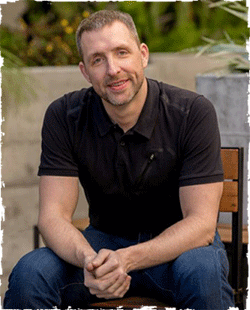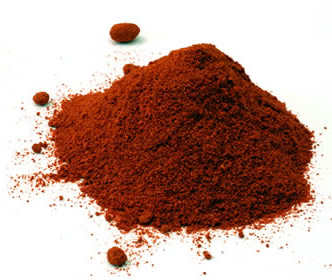Aromatherapy has become a standard alternative medicine that many people use and believe to work. I know very little about Aromatherapy except for the simple fact that in the shower I find that the different smells of our different soaps make me react differently emotionally.
Aromatherapy is very esoteric and new age but I still wanted to learn more so I went hunting for some Aromatherapy info and found it. Jeffrey Meier wrote the following article that presents lots of the background on Aromatherapy as well as a lot of the uses. More and more clinics are signing up to our platform every day, starting in the northeast and expanding rapidly throughout the country.

There is a rumor going around that there are certain oils that not only leave you feeling fresh and light, but also have certain healing properties. Have you heard that rumor? Yes? I have too, which prompted me to want to find out more. In my research, I was led down a path toward aromatherapy. Do you want to know more? Let’s explore together!
According to my research, aromatherapy is a form of alternative medicine that uses essential oils and other scented plant compounds in order to positively affect a person’s mood or health.
On the technical side, the reason that the essential oils are different than other herbal products is because of the distillation process which recovers the lighter “phytomolecules.” Trust me; I don’t know what they’re talking about either. However, what I do know is that many praise its benefits and highly recommend it, so my research took me in the direction of learning what different types are available, and why they are so helpful.
History of Aromatherapy
Before we go into the types of aromatherapy, I wanted to look at the history of this great medical tradition. Unlike many other natural medical alternatives, the roots of aromatherapy are grounded in the West. The term was coined by a French chemist named Rene Maurice Gattefosse who was dedicated to researching the healing properties of essential oils.
During one of his chemistry projects, he accidentally set his arm on fire. When he submerged it in the nearest cold liquid he could find, he realized immediately that the pain in his arm was relieved. He looked at the vat and saw the cold liquid was NOx PH232, which is also called lavender oil.
And after a few days, he saw that the recovery time for his burn was significantly decreased; in addition, his redness, inflammation, blisters and scarring were almost non-existent, helping him to further realize its healing properties. Not long after, a protege named Jean Valnet continued Gattefosse’s work by treating wounded soldiers with essential oils during World War II. It was with these two chemists that aromatherapy was born.
How Aromatherapy Works
Aromatherapy is said to work as a preventative measure to treat the body before a disease is able to present itself. There are two reasons alternative medical practitioners say that aromatherapy works. One is that the scent from these special essential oils has a very positive effect on the limbic system (the set of brain structures that support emotion and memory).
The other is that essential oils are said to have a direct pharmacological effect on the body. However, studies have yet to prove that the effect is actually true.

The two ways that essential oils are used in aromatherapy are at the scent level and the skin level. As mentioned before, at the scent level, the aromatherapy oils are said to activate the emotional centers of the brain. When taken at the skin level, as found with the burned Gattefoss, the oils have healing properties that speed up recovery time and act as a treatment to kill microbes and fungi; they are also used as massage oils by some.
There is also a third way essential oils are used, even though this is not recommended for home use. This third way is to take the oil internally. When this is done (under professional direction and supervision), the oils are said to positively stimulate the immune system.
Uses of Aromatherapy
There are many different types of essential oils that are used in aromatherapy – and they all have different ways of stimulating the body. For example, basil essential oils are used in perfumes as a way to help sharpen concentration, reverse depression and relieve headaches
Bergamot is another essential oil with significant effects, such as clearing both the urinary and digestive tracts, as well as relieving cold sores and the chicken pox. And the more popular tea tree oil is known as an antiseptic and disinfectant.
But there are many other essential oils out there. Some include black pepper (surprised?), cloves, lemons, and thyme. But when considering any aromatherapy essential oil treatments, keep in mind that they are all highly concentrated and should therefore be kept away from small children, just like any other medication.
Acceptance and Criticism of Aromatherapy
Some countries, France in particular, consider the use of essential oils to be one of their mainstream forms of medicine and even considered it to be its own branch of medicine like dentistry. In France, they use the essential oils as antiseptics, as well as antiviral, antifungal, and antibacterial treatments, and the oils are regulated just as prescription drugs are.
In order to decide which essential oil to use, they call upon a technique called the aromatogram, which involves culturing a sample of infected tissue then growing the culture and dividing it among Petri dishes. The dishes are then inoculated with different essential oils to determine which has the greatest effect, and that is how the appropriate oil is chosen.
While the aromatherapy form of alternative medicine is highly respected by some, there are others who don’t believe in the effects of aromatherapy and feel that it is another way to sell a dream to those who are looking for a “quick medical fix.”
Those who believe in aromatherapy, however, disregard this sentiment and say that, just like deciding to use the other disregarded alternative forms of medicine, including herbs and minerals, acupuncture and even meditation, it is up to every individual’s interpretation of what works for them that matters. In other words, don’t knock it until you try it.
Aromatherapy is still in the process of being accepted in the Americas, but is becoming more appreciated by those who are tired of internalizing synthetic pharmaceuticals that seem to have tons of side effects and essentially have the potential to do more harm than good.
Though it is still in the beginning stages of acceptance, there are plenty of alternative medicine practitioners who are willing to give it a try. It seems that many are noticing that the Earth has an abundant supply of what we need to keep us well. And as this becomes more recognizable, there will be more opportunities to try the unique forms of alternative medicine available, including acupuncture, and of course, aromatherapy.




